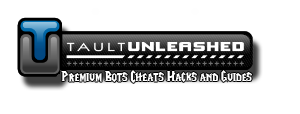|
Tseric from Blizzard took the time and shed some thoughts on the notion of Blizzard turning everyone into "hybrids" in the game. Have a listen...
In some respect, yes. Hybridization shows its effects in different classes in different ways. Now, if you begin with the conventional 'holy trinity' of tanking, damage and healing you can define your primary classes as Warrior, Rogue, Mage and Priest. Then, you throw in the added elements of survivability, utility, debuffing, crowd control, etc. which fill out a variety of spells and abilities that may share some usage between classes, such as fear for both Warlock and Priest or stun effects between a Rogue and a Paladin. With these added elements you can share 'jobs' of the main three groups with other classes by having an exchange of a variety of abilities and tasks. With hybridization, the devs may occassionally mirror abilities from one class to another, but usually what they are trying to do is spread out functionality between classes, so that the group as a whole has responses or counters to a variety of situations, rather than single classes defined by a single type of response.
Consider Priest and Mage dispelling effects. One design path could dictate that the mage should be all things arcane and be proficient in all aspects of arcane study. By this reasoning, they should have a dispel magic ability. However, by having the Priest be a dispeller, it provides a response for the Priest to magic-using classes. Alternately, the Mage has a response in decursing, which could be argued as the providence of Warlocks, the primary curse-caster. By spreading out abilities and magic-types, the classes are placed in a balance scheme of attacks and counter-attacks, which defines the core philosophy of rock-paper-scissors.
Now, all classes may be affected by hybridization, but that doesn't mean that all classes are 'pure' hybrids. A particular note about this game is that the designers have strived to give solo-ability to each class. Each class should be able to progress through the game in a reasonably comparative fashion. In the 'holy'trinity', damage lends itself to this task easiest. All classes have to have some proficiency at dealing damage in order to progress through a solo game of this type. Therefore, the ability to deal damage becomes more common among all classes and therefore becomes competitive, as players invariably gauge performance in some part by damage dealt. Utility, crowd control, escape tactics, etc. are then used to give variety of use and appeal to groups. As mentioned before, the over-arching idea is to provide options for a group to respond to any given situation, not just an individual.
Now, it has been mentioned before that Warriors are a tank/melee hybrid. With core classes, the idea of hybridization translates more as, "Warriors are a primary tank, with the option to specialize into a damage-dealing mode." In the case of Rogues, who are probably the most singular in their role of damage-dealing it translates into "Primary melee damage with support of crowd control and utility." The drive of hybridization is to provide options and varied game play for any one class. By strictly defining roles, you pidgeon-hole players into just tanking or just dps'ing because of an initial class choice.
I often see the question of "what's my role?" on these boards. To that I would probably ask "Well, what tools do you have available to you and how to you use them?" While the designers do concentrate classes for certain roles, they also want to provide room for player choice and give classes the potential to be defined by the player, through varied use.
Anyways, I thought the OP's question was concise and interesting and a platform for good discussion. Sometimes, the most obvious or simple questions are the best.
Thanks
|
 WOW Hybridization. : World of Warcraft General Discussions
WOW Hybridization. : World of Warcraft General Discussions WOW Hybridization. : World of Warcraft General Discussions
WOW Hybridization. : World of Warcraft General Discussions